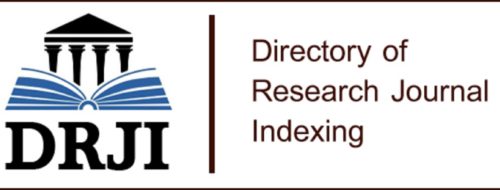Öz
Kent planlama anlayışı ve politikalarında geleneksel yöntemlerin, teknik yaklaşımların ve
merkeziyetçi anlayışın sonuç üretmedeki yetersizliği ve giderek karmaşıklaşan sorunlara çözüm
arayışları politika alanında iş birliğinin önemini artırmaktadır. Kent ile ilgili karar alma sürecinde
kentte yaşayanlar giderek daha az söz sahibi olmaktadır. Önceleri ekoloji alanı ile ilişkisel olarak
çevre konularında ve afet riskleri bağlamında ele alınan kent direnci kavramının giderek kent ile ilgili
daha fazla sorun alanını anlatmak için kullanılması planlama yaklaşımlarında ve kent politika
alanında kentsel direncin sağlanmasında nasıl bir yöntem izlenebileceği konusunun daha yakından
anlaşılmasını gerektirmektedir. Bu bağlamda çalışmanın amacı, kentlere direnç kazandırılması
yolunda uygulanacak planlama anlayışı ve politikalarda izlenecek yöntemde iş birliğinin önemini
ortaya koymaktır. Özellikle mekânın üretiminde etkili olan aktörlerin farklılığı ve sayısı göz önüne
alındığında söz konusu aktörlerin politika yapım ve uygulama sürecinde iş birliği içerisinde hareket
etmesi kentin dirençli olma düzeyini etkileyecektir. Çalışmanın önemi kentsel direnç çalışmalarının
ağırlıklı olarak teknik yaklaşımlarla değerlendirilmesinin yetersizliğini kent hakkı tartışmaları ile
ilişkilendirerek farklı aktörlerin birlikte hareket etmesinin önemini ortaya koymasıdır. Dirençli bir
kent yaratma politikaları aktörler arası iletişim ve iş birliği çerçevesinde kent yönetimleri odağında
geliştirilmesi gereken bir çerçeveye sahiptir.
Kaynakça
- Adger, W. Neil (2000), “Social and Ecological Resilience: Are They Related?”, Progress of Human Geography, 24(3), 347-364.
- Ahern, Jack (2013), “Urban Landscape Sustainability and Resilience: The Promise and Challenges of Integrating Ecology with Urban Planning and Design”, Landscape Ecol, 28, 1202-1212.
- Beilin, Ruth ve Cathy Willkinson (2015), “Introduction: Governing fo Urban Resilience”, Urban Studies, 52(7), 1205-1217.
- Cartails, Constantinos (2014), “Toward Resilient Cities- A Review of Definitions, Challenges and Prospects”, Advances in Building Energy Rersearch, 8(2), 259-266.
- Coaffe, Jon (2013), “Rescaling and Responsibilising the Politics of Urban Resilience: From National Security to Local Place-Making”, Politics, 33(4), 40-252.
- Deshkar, Sameer; Yoshitsugu Hayashia; Yasuhiro Mori (2011), “An Alternative Approach for Planning The Resilient Cities in Developing Countries”, International Journal of Urban Sciences, 15(1), 1-14.
- Desouza, Kevin C. ve Trevor H. Flanery (2013), “Designing, Planning and Managing Resilient Cities: A Conceptual Framework”, Cities, 35, 89-99.
- Ersavaş Kavanoz, Suna (2020), “Kentsel Direnç Kavramı Üzerine”, Kent ve Çevre Araştırmaları Dergisi, 2 (1), 5-24.
- Godschalk, David R. (2003), “Urban Hazard Mitigation: Creating Resilient Cities”, Natural Hazard Review, 4(3), s.136-143.
- Güler, Mahmut (2011). “Kentsel Haklar, Kapitalizm ve Katılım”, Ankara Üniversitesi SBF Dergisi, 66(1), 49-71.
- Holling, C.S.. (1973), “Resilience and Stability of Ecological Systems”, Annual Review of Ecology and Systematics, 4, 1-23.
- Jabareen, Yosef (2013), “Planning The Resilient City: Concepts and Strategies For Coping with Climate Change and Environmental Risk”, Cities, 31, 220-229.
- Jha, Abhas K., Todd W Miner, Zuzana Stanton-Geddes, (2013). Building Urban Resilience: Principles, Tools and Practice, Direction in Development Washington, DC: World Bank. doi: 10.1596/978-0-8213-8865-5.
- Kwakkel, Jan H., Warren E. Walker, Marjolijn Haasnoot (2016), “Coping With The Wickedness of Public Policy Problems: Approaches for Decision Making Under Deep Uncertainty”, Journal Water Resourch Planning Manage, 142(3), 1-5.
- Lefebvre, Henri (2015), Şehir Hakkı, çev Işık Ergüden, İstanbul: Sel Yayınları.
- McNally, David (2013), Başka Bir Dünya Mümkün: Küreselleşme ve Antikapitalizm, İstanbul: Yordam Kitap.
- Mehmood, Abid (2016), “Of Resilient Places: Planning for Urban Resilience”, European Planning Studies, 24(2), 407-419.
- Pelling, Mark (2003), The Vulnerability of Cities: Natural Disasters and Social Resilience, London: Earthscan.
- Pickett, S.T.A., M.L. Cadenasso, J.M.Grove (2004), “Resilient Cities: Meaning, Models, and Metaphor for Integrating The Ecological, Socio-Economic, and Planning Realms”, Landscape and Urban Planning, 69, 369-384.
- Purcell, Mark (2002), “Excavating Lefebvre: The Right to The City and It’s Urban Politics of The Inhabitant”, GeoJournal, 58, 99-108.
- Spaans, Marjolein, Bas Warterhout (2017), “Building up Reilience in Cities Worldwide-Rotterdam as Participant in the 100 Resilient Cities Programme, Cities, 61, 109-116. Stumpp, Eva-Maria (2013), “New in Town? On Resilience and “Resilient Cities””, Cities, 32, 164-166.
- Turnhout, Esther, Tamara Metze, Carina Wyborn, Nicole Klenk ve Elena Louder (2020), “The Politics of Co-Producion: Participation, Power and Transformation”, Current Opinion in Environmental Sustainability, 42, 15-21.
- Türe, Cengiz ve Ar, Murat (2005), Sağlıklı Kentler Birliği Üyesi Kentlerin İklim Değişikliğine Uyum Kapasitelerinin Belirlenmesi, Türkiye Sağlıklı Kentler Birliği Başkanlığı.
- Vale, Lawrence J. (2014), “The Politics of Resilient Cities: Whose Resilience and Whose City?”, Building Research&Information, 42(2), 191-201.
- Wagenaar, Hendrik ve Cathy Wilkinson, (2013), “Enacting Resilience: A Performative Account of Governing for Urban Resilience”, Urban Studies, 52(7), 1265-1284.
- Wilhelm, Mario (2011), “The Role of Community Resilience in Adaption to Climate Change: The Urban Poor in Jakarta, Indonesia”, İç. Resiliant Cities: Cities and Adaptation to Climate Change Proceedings of The Global Forum 2010 ed. Konrad-Otto Zimmermann, Local Sustainability 1, Springer:Newyork, 45-54.
- Zhang, Xiaoling ve Huan Li (2018), “Urban Resilience and Urban Sustainabilitiy: What We Know and What We Do Not Know?”, Cities, 72, 141-148.
- Zimmermann, Monika ve Nathan Brettscneider, (2011), “Introduction: Local Strategies and Actions in Response to Climate Change”, İç. Resiliant Cities: Cities and Adaptation to Climate Change Proceedings of The Global Forum 2010 ed. Konrad-Otto Zimmermann, Local Sustainability 1, Springer:Newyork, 189-192.
Öz
The fact that traditional methods, technical approaches, and the perception of centralism in
urban planning policies have failed to produce sufficient solutions to the wicked problems have
increased the importance cooperation in the field of politics. People living in cities have less say in
decision making processes regarding their cities. The concept of urban resilience which was
previously a subject of environment and disaster risks in relation to ecology, have started to be used to
explain more and more issues relating to cities. The transformation and expansion of the concept
requires a closer understanding of what methods can be followed in planning and urban policy in
order to provide urban resilience. In this context, the aim of the study is to discuss the importance of
cooperation in planning and policy methods in order to make cities more resilient. Considering the
diversity and number of actors that are effective in the production of the space, the cooperation of
these actors in the process of policy making and implementation the level of the resilience of the city.
The significance of the study is that it puts forward the insufficiency of evaluating urban resilience
studies mainly by technical approaches and the importance of acting together of different actors in the
context of the discussions on the right to the city. Policies of creating a resilient city have a
framework that needs to be developed through communication and cooperation and and city
governments.
Anahtar Kelimeler
Kaynakça
- Adger, W. Neil (2000), “Social and Ecological Resilience: Are They Related?”, Progress of Human Geography, 24(3), 347-364.
- Ahern, Jack (2013), “Urban Landscape Sustainability and Resilience: The Promise and Challenges of Integrating Ecology with Urban Planning and Design”, Landscape Ecol, 28, 1202-1212.
- Beilin, Ruth ve Cathy Willkinson (2015), “Introduction: Governing fo Urban Resilience”, Urban Studies, 52(7), 1205-1217.
- Cartails, Constantinos (2014), “Toward Resilient Cities- A Review of Definitions, Challenges and Prospects”, Advances in Building Energy Rersearch, 8(2), 259-266.
- Coaffe, Jon (2013), “Rescaling and Responsibilising the Politics of Urban Resilience: From National Security to Local Place-Making”, Politics, 33(4), 40-252.
- Deshkar, Sameer; Yoshitsugu Hayashia; Yasuhiro Mori (2011), “An Alternative Approach for Planning The Resilient Cities in Developing Countries”, International Journal of Urban Sciences, 15(1), 1-14.
- Desouza, Kevin C. ve Trevor H. Flanery (2013), “Designing, Planning and Managing Resilient Cities: A Conceptual Framework”, Cities, 35, 89-99.
- Ersavaş Kavanoz, Suna (2020), “Kentsel Direnç Kavramı Üzerine”, Kent ve Çevre Araştırmaları Dergisi, 2 (1), 5-24.
- Godschalk, David R. (2003), “Urban Hazard Mitigation: Creating Resilient Cities”, Natural Hazard Review, 4(3), s.136-143.
- Güler, Mahmut (2011). “Kentsel Haklar, Kapitalizm ve Katılım”, Ankara Üniversitesi SBF Dergisi, 66(1), 49-71.
- Holling, C.S.. (1973), “Resilience and Stability of Ecological Systems”, Annual Review of Ecology and Systematics, 4, 1-23.
- Jabareen, Yosef (2013), “Planning The Resilient City: Concepts and Strategies For Coping with Climate Change and Environmental Risk”, Cities, 31, 220-229.
- Jha, Abhas K., Todd W Miner, Zuzana Stanton-Geddes, (2013). Building Urban Resilience: Principles, Tools and Practice, Direction in Development Washington, DC: World Bank. doi: 10.1596/978-0-8213-8865-5.
- Kwakkel, Jan H., Warren E. Walker, Marjolijn Haasnoot (2016), “Coping With The Wickedness of Public Policy Problems: Approaches for Decision Making Under Deep Uncertainty”, Journal Water Resourch Planning Manage, 142(3), 1-5.
- Lefebvre, Henri (2015), Şehir Hakkı, çev Işık Ergüden, İstanbul: Sel Yayınları.
- McNally, David (2013), Başka Bir Dünya Mümkün: Küreselleşme ve Antikapitalizm, İstanbul: Yordam Kitap.
- Mehmood, Abid (2016), “Of Resilient Places: Planning for Urban Resilience”, European Planning Studies, 24(2), 407-419.
- Pelling, Mark (2003), The Vulnerability of Cities: Natural Disasters and Social Resilience, London: Earthscan.
- Pickett, S.T.A., M.L. Cadenasso, J.M.Grove (2004), “Resilient Cities: Meaning, Models, and Metaphor for Integrating The Ecological, Socio-Economic, and Planning Realms”, Landscape and Urban Planning, 69, 369-384.
- Purcell, Mark (2002), “Excavating Lefebvre: The Right to The City and It’s Urban Politics of The Inhabitant”, GeoJournal, 58, 99-108.
- Spaans, Marjolein, Bas Warterhout (2017), “Building up Reilience in Cities Worldwide-Rotterdam as Participant in the 100 Resilient Cities Programme, Cities, 61, 109-116. Stumpp, Eva-Maria (2013), “New in Town? On Resilience and “Resilient Cities””, Cities, 32, 164-166.
- Turnhout, Esther, Tamara Metze, Carina Wyborn, Nicole Klenk ve Elena Louder (2020), “The Politics of Co-Producion: Participation, Power and Transformation”, Current Opinion in Environmental Sustainability, 42, 15-21.
- Türe, Cengiz ve Ar, Murat (2005), Sağlıklı Kentler Birliği Üyesi Kentlerin İklim Değişikliğine Uyum Kapasitelerinin Belirlenmesi, Türkiye Sağlıklı Kentler Birliği Başkanlığı.
- Vale, Lawrence J. (2014), “The Politics of Resilient Cities: Whose Resilience and Whose City?”, Building Research&Information, 42(2), 191-201.
- Wagenaar, Hendrik ve Cathy Wilkinson, (2013), “Enacting Resilience: A Performative Account of Governing for Urban Resilience”, Urban Studies, 52(7), 1265-1284.
- Wilhelm, Mario (2011), “The Role of Community Resilience in Adaption to Climate Change: The Urban Poor in Jakarta, Indonesia”, İç. Resiliant Cities: Cities and Adaptation to Climate Change Proceedings of The Global Forum 2010 ed. Konrad-Otto Zimmermann, Local Sustainability 1, Springer:Newyork, 45-54.
- Zhang, Xiaoling ve Huan Li (2018), “Urban Resilience and Urban Sustainabilitiy: What We Know and What We Do Not Know?”, Cities, 72, 141-148.
- Zimmermann, Monika ve Nathan Brettscneider, (2011), “Introduction: Local Strategies and Actions in Response to Climate Change”, İç. Resiliant Cities: Cities and Adaptation to Climate Change Proceedings of The Global Forum 2010 ed. Konrad-Otto Zimmermann, Local Sustainability 1, Springer:Newyork, 189-192.
Ayrıntılar
| Birincil Dil | Türkçe |
|---|---|
| Bölüm | Makaleler |
| Yazarlar | |
| Yayımlanma Tarihi | 31 Ağustos 2021 |
| Kabul Tarihi | 16 Mart 2021 |
| Yayımlandığı Sayı | Yıl 2021 |
Cited By
KENTSEL DİRENÇLİLİKTE BELEDİYE BİRLİKLERİNİN ROLÜ: TÜRKİYE BELEDİYELER BİRLİĞİ
Ömer Halisdemir Üniversitesi İktisadi ve İdari Bilimler Fakültesi Dergisi
https://doi.org/10.25287/ohuiibf.1439929
Kent Makroformunun Kentsel Dirençliliğe Etkisi: Düzce Örneği
Doğal Afetler ve Çevre Dergisi
https://doi.org/10.21324/dacd.1383033
Şehir Tarımı Ve Arıcılığının Şehir Dirençliliği Ekseninde Değerlendirilmesi
Karadeniz Sosyal Bilimler Dergisi
https://doi.org/10.38155/ksbd.1291701













ERÜ İktisadi ve İdari Bilimler Fakültesi Dergisi 2021 | iibfdergi@erciyes.edu.tr
Bu eser Creative Commons Atıf-Gayri Ticari-Türetilemez 4.0 Uluslararası Lisansı ile lisanslanmıştır.


